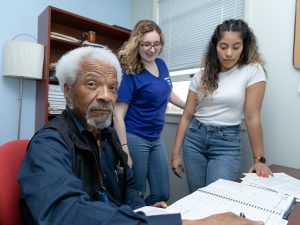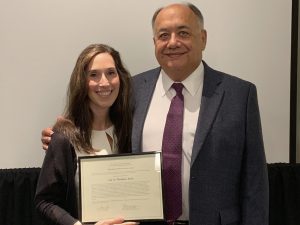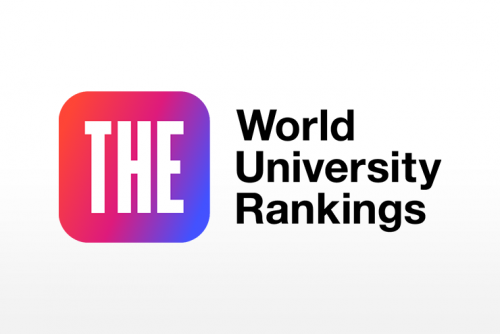
A clinic in nearby Hempstead, run by the Gordon F. Derner School of Psychology, is providing mental health care to disadvantaged students while teaching graduate students just how big a difference they can make in the life of a child.
Pursue an in-demand career of transforming the lives of children and families with a PsyD in School Psychology degree from an award-winning school.
A PsyD in school psychology can lead to a variety of careers in the fields of psychology, education and healthcare. Career paths for those with a doctorate in school psychology include:
Here are some additional career options that may be available to those with a PsyD in school psychology:
The job outlook for those with a PsyD in school psychology is good. The Bureau of Labor Statistics projects that employment of school psychologists will grow 12 percent from 2020 to 2030, faster than the average for all occupations. This growth is expected to be driven by the increasing demand for school psychologists, as well as the growing awareness of the importance of mental health in schools.
Here’s a sampling of the various settings in which school psychologists may work:
The Adelphi University School Psychology philosophical and educational models of training are born within an ecological framework in which research and teaching are guided by advancing social justice for all children through science, practice and policy. The ecological model suggests a structure for the training of practitioner-scientists who understand and practice psychology in a sociocultural context that allows for the conceptualization of relationships among various aspects of the individual (i.e., biological, cultural and relational), in numerous forms of social organizations (i.e., families, schools, neighborhoods, communities, vocational settings) and through multiple structural influences (i.e., socioeconomic factors, social policy, reward systems). The program promotes an understanding of the systematic approach to human and social development and aspires to graduate school psychologists who think systemically and are aware of the profound impact culture and the environment have on the learning and emotional health of children. This framework allows faculty to point to how influenced the children’s development is by biological factors, the immediate environment and the interplay of the larger environment, and how media, school, and state and federal policies can play a major role in children’s learning experiences.
The course of study in the School Psychology doctoral program at Adelphi University prepares students to meet the increasingly diverse responsibilities of school psychologists in an increasingly diverse society. Emphasis is placed on important content areas that contribute to the development of competencies with an understanding and respect for individual differences and human diversity. Our developmental- and competency-based, practitioner-scientist course of study ensures that student learning is appropriately sequenced and integrated into relevant practical experiences. The program’s mission embodies a commitment to work from an ecological and social justice perspective and to promote an understanding of a child’s development through the lens of a larger sociocultural context. This training is intended to extend students’ awareness, knowledge and expertise to address the needs of all children and families, regardless of their particular status. In addition, the program is designed to acquaint students with the diversity of theories and practices of school psychology, allowing the student sufficient intellectual freedom to experiment with different delivery systems and various theoretical bases. Emphasis is also given to being mindful of the children’s subjective states and experiences with others and how their reactions and coping mechanisms can affect their learning and adjustment.
Given this mission, the school psychology program aims to ensure that a) all students are knowledgeable and competent in research and scientific-backed practice, particularly as it relates to school psychology, b) are competent in the practice of health service psychology, and c) are competent in the practice in the specialty area of school psychology. These aims facilitate preparation of health service psychologists who will practice in educationally related settings and meet the professional employment demands for psychologists in schools and in child treatment agencies, hospitals and private practice, and for psychoeducational research and mental health research specialists in child psychology.
Students are required to complete fieldwork and clinical training whereby applied experiences are integrated with school psychology doctoral course work and theoretical knowledge across multiple field training experiences. For more information, please refer to the Field Placement Handbook.
The application deadline for the School Psychology PsyD program is December 15.
Please complete the Centralized Application Service for Graduate Psychology (PSYCAS) application. Once received by PSYCAS, your application and materials go through a verification process before being transmitted for review to the School Psychology Doctoral Program at Adelphi University.
Please submit the following application materials directly to PSYCAS:
Adelphi University makes financial assistance available based on academic merit and financial need. View program tuition and costs.
Many school psychology doctoral students receive graduate assistantships, although funding is not guaranteed. To improve the probability of being awarded a graduate assistantship, students should familiarize themselves with program faculty members, the courses they teach, and their research interests.
The School Psychology PsyD Program offers four types of assistantships:
Graduate assistantships range from 5-20 hours per week. Students have the option of tuition deferral, whereby tuition may be paid in installments for an additional fee, arranged with the Bursar’s Office.
Part-time employment is another option, with job opportunities available through the university’s Center for Career and Professional Development.
General need-based financial aid includes Federal Stafford Loans (FSL) and Federal Work Study (FWS). These latter forms of assistance can be acquired by completing the Free Application for Federal Student Aid (FAFSA) or Renewal FAFSA. Students interested in additional sources of financial aid, including federal and private loans, may contact Student Financial Services.
The Doctoral Program in School Psychology received approval from the American Psychological Association’s (APA) Commission on Accreditation (CoA) for our “Intent to Apply” application and voted to provide public notice of the program’s intent to seek accreditation on the CoA website. The doctoral program is not currently accredited by the American Psychological Association (APA). The program is, however, designed to be aligned with the APA’s accreditation standards set forth by the “Standards of Accreditation in Health Service Psychology” (SoA). The Doctoral Program in School Psychology will apply for accreditation as soon as possible.
APA accreditation is designed so that new doctoral programs can apply for, and possibly achieve accreditation, which is the goal for this nascent PsyD program. We cannot guarantee accreditation, but will make every effort to be successful toward that goal. Graduation from a nonaccredited program may impact eligibility for licensure in the state in which the student intends to practice. All applicants should investigate licensure requirements of the state in which they intend to practice.
For more information visit the APA accreditation website.
Office of Program Consultation and Accreditation
750 First St., NE
Washington, DC 20002-4242
Telephone: 202-336-5979
TDD/TTY: 202-336-6123
Fax: 202-336-5978
My experience studying for my doctorate at Adelphi has been engaging and thought provoking. The professors are truly interested in your well-being and push you to perform your best academically.
Research and clinical experiences are critical to doctoral-level training, and through Adelphi’s own Derner Hempstead Child Clinic, and the Equity Lab Institute we offer our students experience on and off-campus.
Staffed by faculty and students from Derner, provides opportunities for clinical practice and mental healthcare to students and their families in Hempstead, Long Island, school systems.
The Equity Lab Institute is devoted to questions of equity in schools at the levels of policy and practice.

Lea A. Theodore, PhD, a professor at Adelphi's Gordon F. Derner School of Psychology, licensed psychologist and school psychologist, knows the effects of environmental conditions on children all too well.





